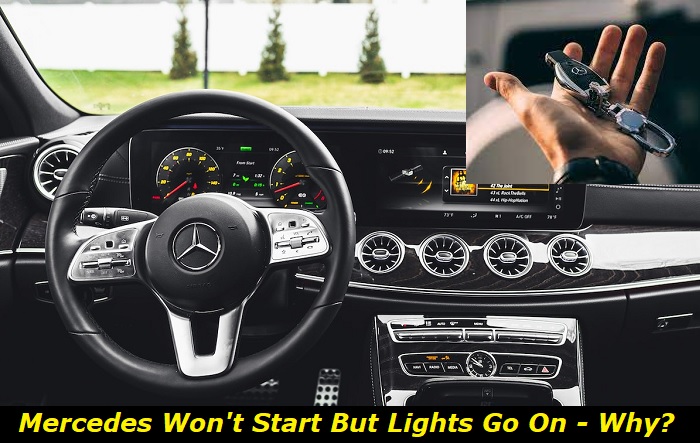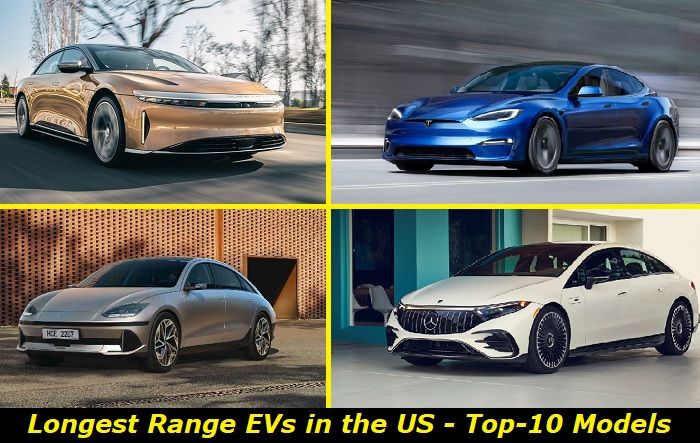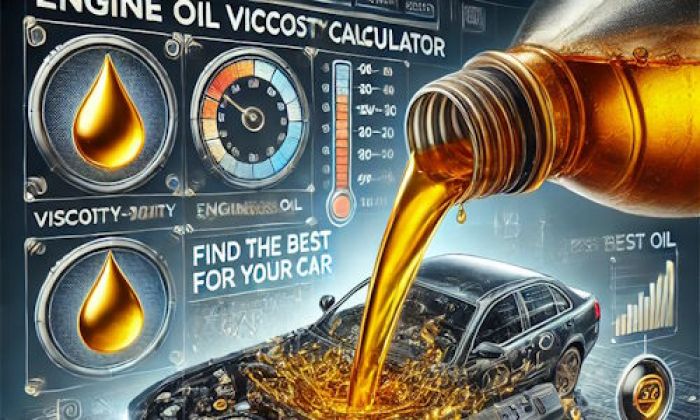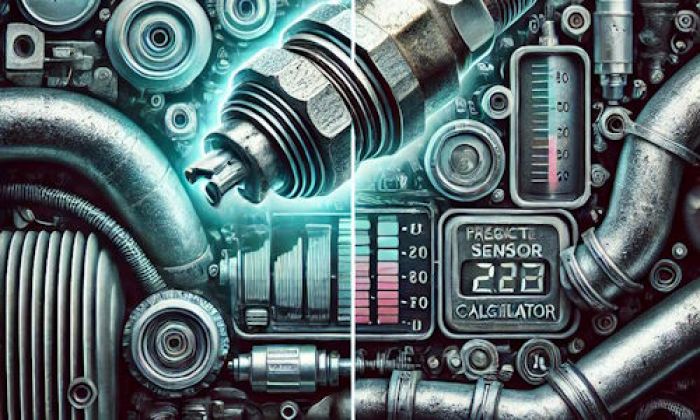In the majority of cases, your problems will revolve around the battery, starter motor, electrical connections, or issues with fuel consumption. For a Mercedes car that is still fresh and doesn't have huge mileage on it, the battery is the number one thing to check as well as all the connections and wires.
No-start problems highlights
- Level of urgency:High
- Can you drive?Obviously, no
- DIY inspection:Possible but complicated
- DIY repair:Mostly,impossible
- Price for repair:$250 - $850
- Common Reasons:Fuel or air supply, compression, spark, electronics
- Ways to fix:Check each system that may cause no-start, check electronics

Discussing the reasons for no-crank problems in your Mercedes vehicle
So, I'm not covering the exact model of Mercedes because this problem is pretty general and can happen with any car, not even limiting the list to Mercedes vehicles. But as several readers asked exactly about this German brand, I will focus on it.
The thing is that this happens too often while the cars may still be 5-6 years old and their owners don't expect this to happen. This has its explanation, but let's look at the most common problems that cause the no-crank issue while the lights turn on.
Here they are:
1. Battery voltage is lower than needed
In many Mercedes vehicles, there is a battery management system that will just cut the energy supply to the starter motor if the voltage is lower than expected. This system was introduced to protect the tender electronic control units from low-voltage effects.
So, your car will be OK and one day it just won't start. Everything will be working, lights will turn on, radio will be working when you turn accessory mode. But the engine won't even try to crank.
This happens when the voltage of the battery drops below 12 volts and it's not safe for the electrical system of the vehicle anymore. Usually, this happens after 4-6 years of battery use and you will need to replace it to keep going.
2. Starter problems
Quite obviously, the second common issue is the broken starter motor. This is the part that is quite reliable and is made to last much longer than many other units in the car. But if the starter motor is affected by water or physical damage, it can die. Also, if you try to crank the engine with a low battery, it may also affect the starter.
The starter solenoid may also go bad and kill the entire unit. There are many other reasons why the starter may not be as reliable as it's intended to be. But for a driver, it's enough to know that it's broken and you need a new one. Or, alternatively, you may try to repair the original starter motor.
3. Electrical connections
Given the lights in your car work well, you may be sure that electricity is there. But why doesn't it go directly to the starter motor? Well, one of the possible reasons is that there is one corroded connection somewhere in the chain between the battery and the starter.
In different models and years, the connection of the starter and battery is different. Unfortunately, it's quite hard to locate all the electrical chains under the hood - you will need to be a good car electrician. But you can find two important points - the battery terminals and the starter motor connections.
You may disconnect both, clean the contacts, and then reconnect them all ensuring that all the connections are good and firm.
4. No fuel supply
In this case, your engine will crank but will not start however hard you try to do it.
One more reason why your Mercedes may not be starting is the problem with fuel supply. This may happen because of the fuel pump, injector issues, or blocked fuel lines. Modern Mercedes vehicles will have two fuel pumps - one is in the tank, like in all older cars, and the other is under the hood - the high-pressure fuel pump.
This high-pressure pump is featured in all direct-injection engines and it may actually be one of the reasons for the problem. High-pressure pumps are not as durable as the classic pumps and they may fail leading to no-start issues.
5. No spark in all spark plugs
One more issue to check is the no-spark issue. In this case, your engine cranks, and the fuel is supplied to the injectors, but there is no spark to start the engine. This is not really common for Mercedes vehicles and may happen in older vehicles with a lot of miles on them. Usually, the problem is with the ECU damage because each spark plug is governed by the separate ignition coils and it's highly unlikely that they all go bad at the same time.
But still, it's possible if your vehicle has been standing in a garage for years and now you are trying to start it.
6. Immobilizer issues or other safety features
If you don't have a proper key on you and the car is equipped with a keyless entry system, the vehicle won't even try to start. You will see the message on the dash saying that the key is not detected. Actually, the dash will say something to you if the problem is with the immobilizer or some safety systems. At least, there will be a warning light and some code behind it.
For example, one of the possible things in modern cars is that the Battery Safety Terminal (or BST) has been blown because of a car crash. If at least one of the airbags was deployed or the car crash sensor noticed some impact, the battery terminal would get blown. One part of it will stay intact and it will still send electricity to the system allowing you to turn on the emergency lights and other features. But the part that powers the starter and actually the entire engine system will be disconnected.
If this happens to your car, you may tear the plastic cover of the terminal and push the disconnected cable back to its place. After that, you will have the check engine light on the dash, but the car will start. The BST will need to be replaced, eventually.
What can you try doing when this happens to you?
There are several things that you may try before going to the dealership or to a good repair shop:
- Check the battery voltage. If it's lower than 12.5 volts, the battery needs to be replaced or recharged. You may also try jump-starting the car to understand if the battery is the actual culprit of the problem.
- Check and clean the connections. It's the free way to try and solve the problem. And it really may help. Besides checking the connections on the battery and the starter motor, locate the ground cable and check it, too.
- Make sure there are no error codes and messages. If there are some, try to figure out what exactly they are trying to tell you.
- Make sure your car wasn't involved in any accident. If it was, the BST is likely to blow and you will need to vandalize it a little to start the engine.
I'm afraid this is more or less everything you can do on your own. If these actions don't help you start the car or at least find the possible issue, you will need to ask for professional help. In most cases, the inspection won't last long and a professional mechanic will locate the actual problem in minutes.
Usual mileage for serious Mercedes problems causing no-start issues
Mercedes cars are usually pretty reliable. There are some common issues like the screen is not working or the dash is saying something weird. But it's not common for a Mercedes car to have a failing starter motor or something like that.
The usual mileage for really serious problems is as follows:
- The starter motor: it will last about 150,000 miles with no serious issues. After that, the starter motor may need some inspections and repairs. It may only fail if physically damaged or submerged in water.
- The fuel pumps. These are not as durable. Very often, the high-pressure pump will ask for some expensive repairs at 100,000 miles or a little later. The low-pressure pump will last much longer.
- Batteries. In vehicles without the start-stop feature, the battery will last about 5 years. In start-stop cars with one battery, it will go 3-4 years.
- Spark plugs and coils. They will usually last very long. I know a Mercedes owner with 150,000 miles on his car and he still hasn't replaced a single spark plug - they are still original. But I still recommend changing them at least once every 30-40 thousand miles. The coils will live longer than that.
As you see, Mercedes vehicles are really reliable and don't have a lot of serious issues. If you encounter the no-start problem, just check everything on the list in this article and see if you can solve the problem on your own. But, in the majority of cases, you will still need some help from professionals.
About the authors
The CarAraC research team is composed of seasoned auto mechanics and automotive industry professionals, including individuals with advanced degrees and certifications in their field. Our team members boast prestigious credentials, reflecting their extensive knowledge and skills. These qualifications include: IMI: Institute of the Motor Industry, ASE-Certified Master Automobile Technicians; Coventry University, Graduate of MA in Automotive Journalism; Politecnico di Torino, Italy, MS Automotive Engineering; Ss. Cyril and Methodius University in Skopje, Mechanical University in Skopje; TOC Automotive College; DHA Suffa University, Department of Mechanical Engineering






Add comment